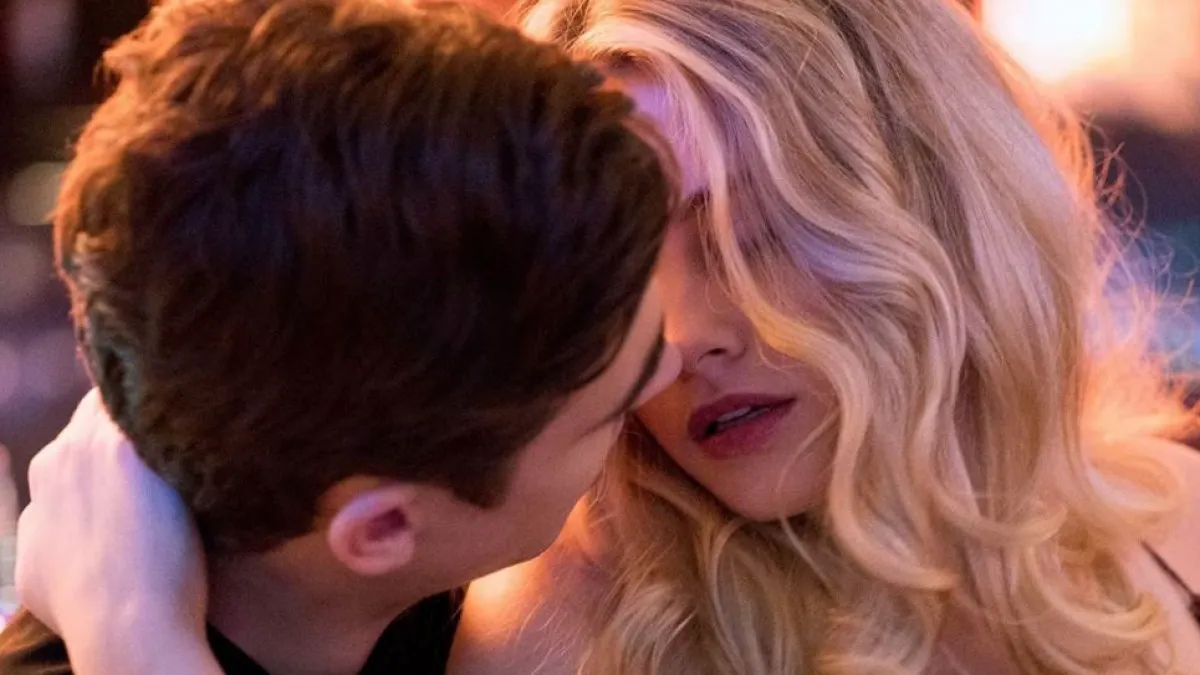As they say, all good things come to an end, and a streak of bad luck can’t last forever. Which of these sayings is applicable to the long-suffering romantic franchise “After,” everyone decides for themselves. One thing is certain: by the release of the fifth and final installment of the film, the producers, director, actors, and everyone involved in the creation of “After” had completely given up. Along with the awkward marketplace placement of condoms, the soaring summer melodies, the heated arguments, and even the passionate love scenes of the main characters disappeared. Culture copies itself, and “After Everything” surprisingly mirrors the fate of the last “Twilight” film, which felt superfluous even within its own cinematic universe. In both cases, the creators decided to split the last book into two separate film adaptations, while Stephanie Meyer’s vampires, even in the final part, had their own clear, albeit somewhat embarrassing, narrative absurdity. Anna Todd’s adaptation, on the other hand, has only a gaping black hole in place of the plot, capturing the viewer’s attention but hardly giving anything in return.

Josephine Langford as Tessa Young in a still from “After Everything”
The action of “After Everything” unfolds immediately after the events of “After Ever Happy.” Hardin (Hero Fiennes Tiffin) is struggling with another breakup with Tessa (Josephine Langford): after her boyfriend immortalized their romance in a book without asking, the girl finally breaks off any relationship with him. At the same time, Hardin is facing a creative crisis — the second book is stubbornly not being written, because the main source of inspiration no longer responds to his messages. Hoping to somehow change the situation, Hardin begins to rethink past mistakes, remembers his former girlfriend Natalie (Mimi Keene), whom he once treated very badly, and decides to apologize to her.

Hero Fiennes Tiffin as Hardin Scott in a still from “After Everything”
Suffering from a nagging sense of guilt, Hardin goes to Portugal, where, according to the creators, all the most interesting things should begin. But for the main audience of “After,” who have faithfully followed the development of the characters’ relationship for the previous five years, nothing new happens in general. Hero Fiennes Tiffin’s character is once again following the familiar path of degradation, breaking down under the burden of responsibility for his own immoral behavior, asking for forgiveness, and blindly hoping that happiness will come to him. Left without the coveted feedback, Hardin throws himself into all sorts of troubles again and again, and so on ad infinitum. “After Everything” differs from the previous parts only in that this circle of emotional hell turns out to be the last for him. A dangerous journey into the past, where Hardin is not a victim of circumstances for the first time (the strange story with paternity can finally fade into the background), but a real villain, completely changes the moral character of the hero — not only in the eyes of the audience, but also in his own.

Mimi Keene as Natalie in a still from “After Everything”
Director Castille Landon, who directed the previous two parts of “After,” does not particularly diligently work out the fee, realizing that no money will redeem the professional failure that the producers incited her to. Josephine Langford probably thought about this too, whose five-minute appearance on the screen does not particularly resonate with the generally accepted idea of a long-awaited reunion of lovers. Hero Fiennes Tiffin once again selflessly pulls the film on himself, justifying either the well-groomed British steadfastness, or the acting genes of a talented uncle.
The moment “and they lived happily ever after” comes when you don’t expect it at all: to the fanfare of completely foreign love, at a wedding, where everyone was invited only to once again observe the interaction of Tessa and Hardin, which had become familiar over the past four parts. The five-second epilogue of “After” with hastily put on wigs and a giant false belly clearly hints that: a) everyone, absolutely everyone, even the greedy producers, finally didn’t care about this film; b) a continuation of this bacchanalia is definitely not worth waiting for, for which a huge thank you to everyone involved.